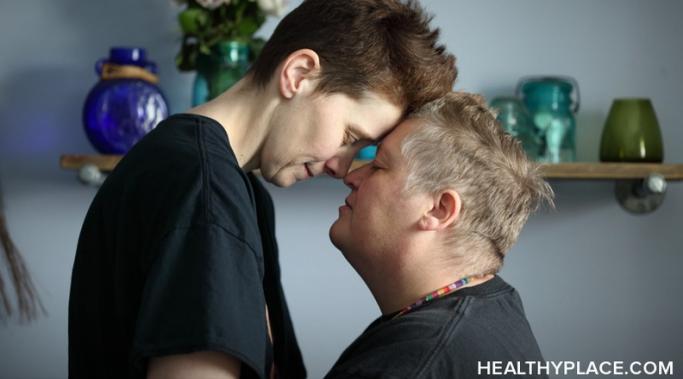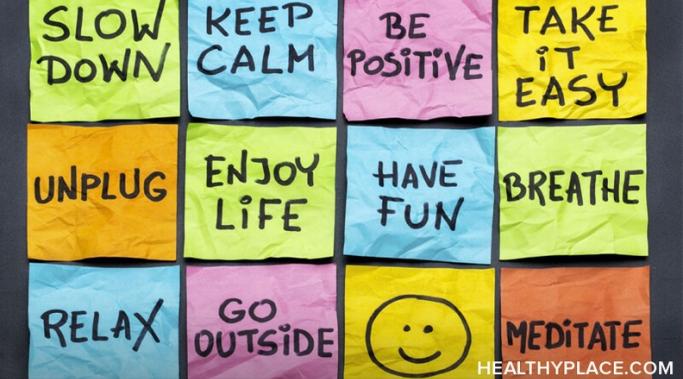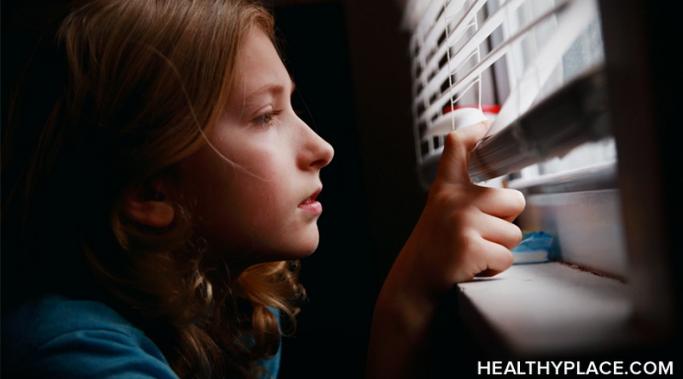My family members each have a different supportive style when it comes to my brother's mental illness. In the early days of his depression and anxiety diagnosis, we used to judge each other for these differences -- each of us believed that our approach was the best one. I am looking at supportive styles differently, now.
Recovery in Mental Illness
Since my brother was diagnosed with anxiety and depression, all types of people have tried to give him advice on his mental health symptoms. Many of these people have no experience of a mental health diagnosis themselves -- and while they mean well, their mental health advice could actually exacerbate depression and anxiety symptoms if my brother followed it.
I must confess, family therapy is something our family has never tried. My brother underwent intensive cognitive behavioral therapy when he was first diagnosed with anxiety and depression, and the facilitator recommended a family therapy session. My parents declined -- I guess the idea of everyone sitting down and talking about their feelings to a stranger didn't feel right at the time.
How to support someone from a distance is a question that I’ve been asking myself almost every day recently. There’s a literal distance between myself and my brother right now due to COVID-19 restrictions, but he’s also crying out for more freedom and control over his life – how do I balance giving support with giving space?
This post was particularly difficult for me to write because mental health hospitalization is not easy to talk about thanks to mental health hospitalization stigma. This stigma is profound, and both the stigma and the hospitalization itself places great strain on both the individual requiring treatment and their loved ones. I struggled with what to write, who to write it for, and if I should even post at all. If you know me or have read my page, you will know that I write for HealthyPlace because my husband has a mental illness. He has a diagnosis of schizophrenia. He also writes for HealthyPlace as a coauthor of "Creative Schizophrenia." Since his last hospitalization, we moved halfway across the country, had our third child, bought a house to renovate, found good jobs, and learned to work through his minor relapses. A couple of days ago, his condition deteriorated. He suffered a significant relapse and displayed signs of dealing with a significant psychotic episode. Even though I blog about coping with a family member's mental illness, I dreaded what came next and the response from those around us. As I drove him to the hospital, I felt the sting of stigma over his mental health hospitalization.
Emotional validation counteracts the lack of stability that may accompany living with a family member suffering from mental illness. Indeed, that lack of stability is challenging to endure. My husband and I usually live day to day or week to week without knowing what our future might hold. Yet, the best way to cope with this instability is to work together and focus on emotional validation.
When my first son was stillborn, I had no idea how to live with grief while balancing my mental illness and my family (Complicated Grief and Bipolar After the Loss of a Loved One). But after having two more amazing children with a husband who continues to stand by my side, we've learned how to live with grief and my mental illness. Nine years after we said goodbye to our first son, I have learned how to grieve while continuing to care for my mental illness and enjoy my family.
When you have bipolar, grieving the death of a loved one can be complicated and downright dangerous (Complicated Grief, PTSD, and Your Brain). Since the stillbirth of my son almost nine years ago, I continue to learn how to cope with this deep loss and remain mentally healthy as I care for my bipolar disorder. Complicated grief with bipolar after the death of a loved one is not an easy thing.
Living in a family with mental illness, it can feel impossible to find peace. Even when I find a way to be stable and healthy while living with bipolar I disorder, mental illness and its effects still run rampant through my family. Countless times, I have looked at my doctors and asked them, "How do I find peace in a family with mental illness?" Their answer is always the same: "Give up trying to find peace in your family. Instead, find peace in yourself, in your own life, on your own terms." As I order my own world, I find a greater level of peace when dealing with my family, despite the havoc mental illness may cause.
This year, I invite bipolar moms to join me in resolving to meet our own needs in 2017. Instead of focusing on our faults this January, we can instead look past those faults to see the needs they represent. And instead of berating ourselves over that need, discrepancy, or flaw, I want to make 2017 the year we find a way to meet our needs and live healthier lives (Taking Care of Myself is the Best Way to Care for My Family).








